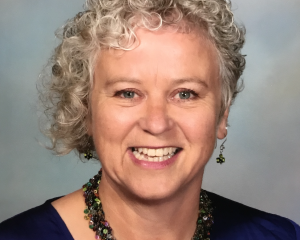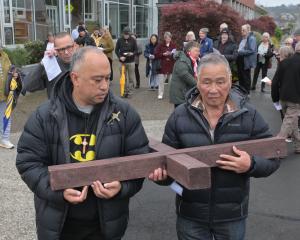Charli (8) and Meg (4) Owen, of Kaitangata, have undiagnosed cerebellar ataxia, which affects their co-ordination and balance and makes them tire easily.
The sisters' geneticist, Cure Kids chairman Prof Stephen Robertson, has been working on some revolutionary research in conjunction with Prof Russell Snell, of the Centre for Brain Research in Auckland.
The research aimed to deliver methods for diagnosing such disorders in the future.
''The nub of this family's issue is a neurological disorder, which affects the girls' gait and balance. Their ataxia is not associated with any intellectual disability; it's all about balance,'' he said this week.
"A lot of people have ataxia, but in this instance we've exhausted all the tests in conventional medicine to diagnose what form they have and we're now looking in the research arena for an answer for them,'' he said.
''It's clearly genetic, but the precise cause is proving hard to pinpoint.
''What has caused it in the family and what is the prognosis? That's the big question.
"We might find something that's brand new knowledge here, but in the end I hope it provides new and useful information for the family,'' Prof Robertson said.
The human genetic constitution has about 21,000 genes accounting for about 1% of a human's DNA.
''We can now filter out that fraction of the genome and sequence it. That version of the genetic code can then be compared with what we know to be a typical or healthy version.
"We're basically looking for spelling mistakes in that genetic haystack.''
The research could be a vital breakthrough in the Owen family's search for answers, he said.
''It will, hopefully, allow us to stop guessing what gene is damaged, or malfunctioning, in their genome and we can bring some clarity about the prognosis.
''Hopefully, one day this won't be research, but part of routine clinical practice.''
The girls' parents, Jodie and Terry Owen, were buoyed by the news.
''It's very exciting. Hopefully, they will be able to find the defective gene the girls have,'' Mrs Owen said.
''It would be nice to meet a family that has the same condition, especially someone who is a bit older than the girls, so they can see what they've got ahead of them.
''We've never found anyone else with it, so we don't know if it's fatal, or how it will affect them as they get older.''
The potential breakthrough had not affected the girls, Mrs Owen said.
''The girls think everything's normal. It's all they know.''
The girls need walking frames inside the house, while outside Charli has a wheelchair and Meg a buggy.
The Kaitangata community and friends built a purpose-designed house for the Owen family earlier this year.











